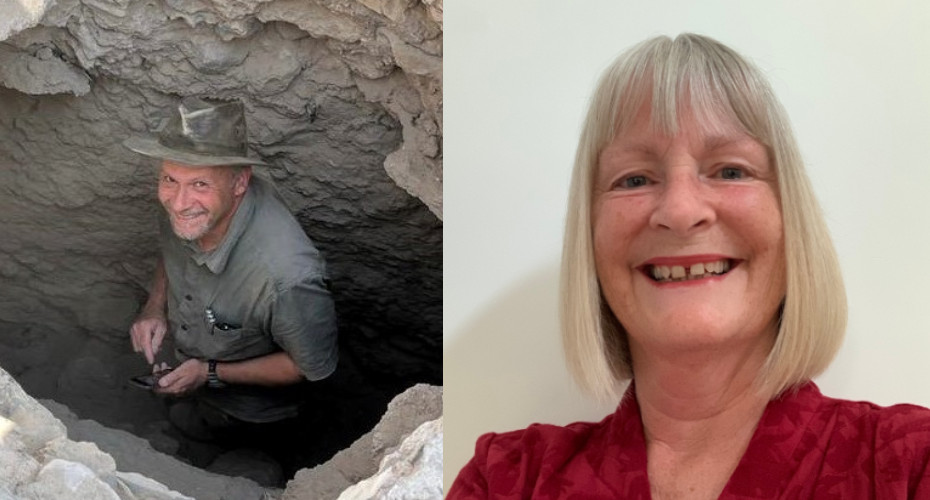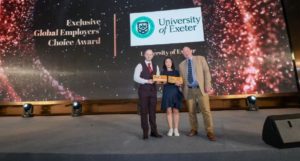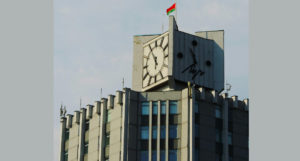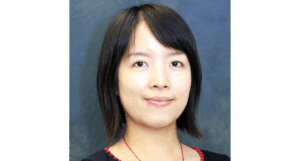University of Exeter experts elected to the UK’s prestigious national academy for humanities and social sciences

Professor Debra Myhill and Professor Timothy Insoll are now Fellows of the British Academy, joining a community of over 1,600 distinguished intellectuals
University of Exeter experts have been elected to the UK’s prestigious national academy for the humanities and social sciences.
Professor Debra Myhill and Professor Timothy Insoll are now Fellows of the British Academy, joining a community of over 1,600 distinguished intellectuals.
Professor Myhill’s work has revolutionised how writing and grammar is taught in schools around the world. Professor Insoll’s work as an archaeologist in Africa and the Middle East has shone new light on the spread of Islam in the region.
Professor Lisa Roberts, Vice-Chancellor of the University of Exeter, said: “Very many congratulations to Debra and Tim. Their work has had a profound impact around the world, and their election as Fellows of the British Academy is richly deserved.”
Professor Myhill has worked at the University of Exeter since 1991, following a career as an English and drama teacher in secondary schools in Devon and Exeter. She has been Pro Vice-Chancellor for Social Sciences and International Studies, Head of Graduate School of Education and Head of Initial Teacher Education.
She has been awarded an MBE and is a Fellow of the Academy of Social Sciences and the Royal Society for the Arts. She is President of the United Kingdom Literacy Association and has been Deputy Chair of the Research Excellence Framework Panel for Education and President of the European Association for Research in Learning and Instruction.
Professor Myhill’s pioneering work has had a major influence on the way writing and grammar is taught in the UK and globally.
Her research shows how grammar is not about ‘rules’, but rather is a creative resource to help children understand how to shape and craft their writing. The professional development materials developed by her and her team have changed the way teachers think about grammar.
Professor Insoll is founder and director of the University of Exeter’s Centre for Islamic Archaeology. Previously he worked at the University of Manchester and the University of Cambridge.
Professor Insoll researches the archaeology of Islam in sub-Saharan Africa, the Arabian Gulf and Arabian Peninsula, and indigenous religions in sub-Saharan Africa. This includes the archaeological indicators of Islam, as well as indigenous beliefs associated with concepts such as ancestral veneration and sacrifice. He also specialises in theoretical archaeological approaches to rituals and religions and has a particular interest in the archaeology of beads and bead materials.
He has led research projects in Mali, Ghana, Saudi Arabia, Ethiopia, and Bahrain, and completed other field and museum-based projects in Eritrea, India, Spain, Pemba Island, and Uganda.
Professor Insoll is a Fellow of the Society of Antiquaries and the Royal Asiatic Society, and the Honorary Archaeological Advisor to the Court of the Crown Prince and Prime Minister of Bahrain, and Honorary Lecturer at Addis Ababa University, Ethiopia. Previously, he was Honorary Curator of the Ghana Museums and Monuments Board, Visiting Professor at Jinka University, Ethiopia, and Honorary Academic Curator of African Archaeology at Manchester Museum.
He has been an advisor to the British Museum, the British Council and other museums and art galleries in the UK and the USA.
Professor Julia Black, President of the British Academy, said: “It is with great pleasure that we welcome yet another outstanding cohort to the Academy’s Fellowship. The scope of research and expertise on display across our newly elected UK, Corresponding and Honorary Fellows shows the breadth and depth of knowledge and insight held by the British Academy and which we work hard to harness to help shape the world.
“With the vast expertise and wide-ranging insights brought by our new Fellows, the Academy continues to showcase the importance of the SHAPE disciplines in opening fresh seams of knowledge and understanding, while simultaneously advancing the well-being and prosperity of societies worldwide. I wholeheartedly congratulate each of our new Fellows on this achievement and look forward to working together.”



